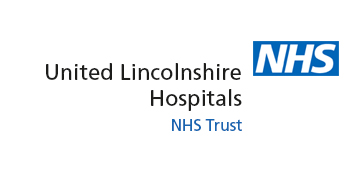The Lincolnshire Clinical Research Facility facilitates the implementation and management of clinical research for the United Lincolnshire Hospitals Trust across its multiple hospital sites within the large rural county of Lincolnshire in the East Midlands. The research undertaken within the trust encompasses a wide range of therapeutic areas including oncology, haematology, stroke, cardiology, paediatric, dermatology, diabetes, midwifery, ophthalmology, respiratory, anaesthesia, gastroenterology, renal and orthopaedics. The breadth of research disciplines managed by the research facility and the diversity of hospital sites within the trust called for a flexible clinical trials management system to support its continued growth and build upon operational processes. In April 2016 ULHT implemented EDGE across all of its sites providing a fully-integrated data platform for the benefit of clinicians, research nurses, radiologists, pharmacists and other research professionals, supporting their clinical research and providing real-time trial data and business intelligence.
The nature of research in the region is influenced by the diverse needs of a population and healthcare system in the large rural county of Lincolnshire, and Lincoln as one of the fastest growing cities in the UK. The trust needed a system to provide the flexibility to manage differing scales of operations and the requirements of individual units within its organisation but maximise communication, and provide consistent metrics and reporting. One of EDGE’s greatest qualities is its adaptability which makes it so flexible in managing the complexities of clinical trials and the range of contexts in which they are conducted.
EDGE is an application which is logical and scalable. During the implementation of the CTMS within the organisation we were able to train and roll out the application around the busy work schedules of the research teams and do this in a stepped process by site. The software is user-friendly yet provides powerful functionality and the option to adapt the application, at multiple levels, to meet the needs of the organisation. A core strength of the system is its flexibility for end-user process adaption, allowing individuals and trusts to creatively develop their particular instance. This in turn contributes to the evolution of EDGE through the perspective of sites and researchers who understand evolving operational needs the most and builds benefits for the EDGE community. The developers have cleverly, through the provision of an attribute based system, created an application which is future-proofed and keeps pace with evolving processes. We can build on the global knowledge of users across the UK and beyond in how we can better use data and systems in the delivery of efficient clinical trials. The role out of the system within our Trust has also provided the unanticipated yet immeasurable benefit of engagement with the wider community of EDGE users in delivering research and in sharing best practices, both in terms of the application itself and sharing research ideas in general.
Within the United Lincolnshire Hospitals Trust we use EDGE to support the setup, feasibility and approval process for studies, track recruitment, manage patient visits, record resource, interventions and inter-disciplinary departmental involvement such as logging studies requiring ECGs, RECIST criteria, all blood sciences requirements etc. We also use EDGE for substantive reporting and monitoring of metrics by maximising the use of core EDGE reports alongside bespoke attribute reporting at a study level, site level and patient level. We are also seeking to develop the system as a trial evaluation tool and workforce management application.
EDGE has provided ULHT with an IT platform to support its strategic planning and growth, enhancing its reporting, communication and trial management to support enhanced participant engagement and patient outcomes. All this supports the delivery of efficient clinical trials. The following principles demonstrate the benefit of EDGE for individuals, trusts, networks and the NHS.
EDGE provides;
1. Complete flexibility to support specific needs of trusts, sites and individuals in managing clinical trials.
2. Creative power for trusts and sites to develop their own instances to meet local needs.
3. an EDGE community who collaborate to collectively evolve the system.
4. a system which is developed through the perspective of the end users who understand their individual needs the most.
5. a robust and secure integrated system and data set for enhancing operational delivery at trust, regional and national levels.
Post by Helene Jones, Research Support Officer
United Lincolnshire Hospitals NHS Foundation Trust
Helene.Jones@ULH.nhs.uk







